You are here
New Releases
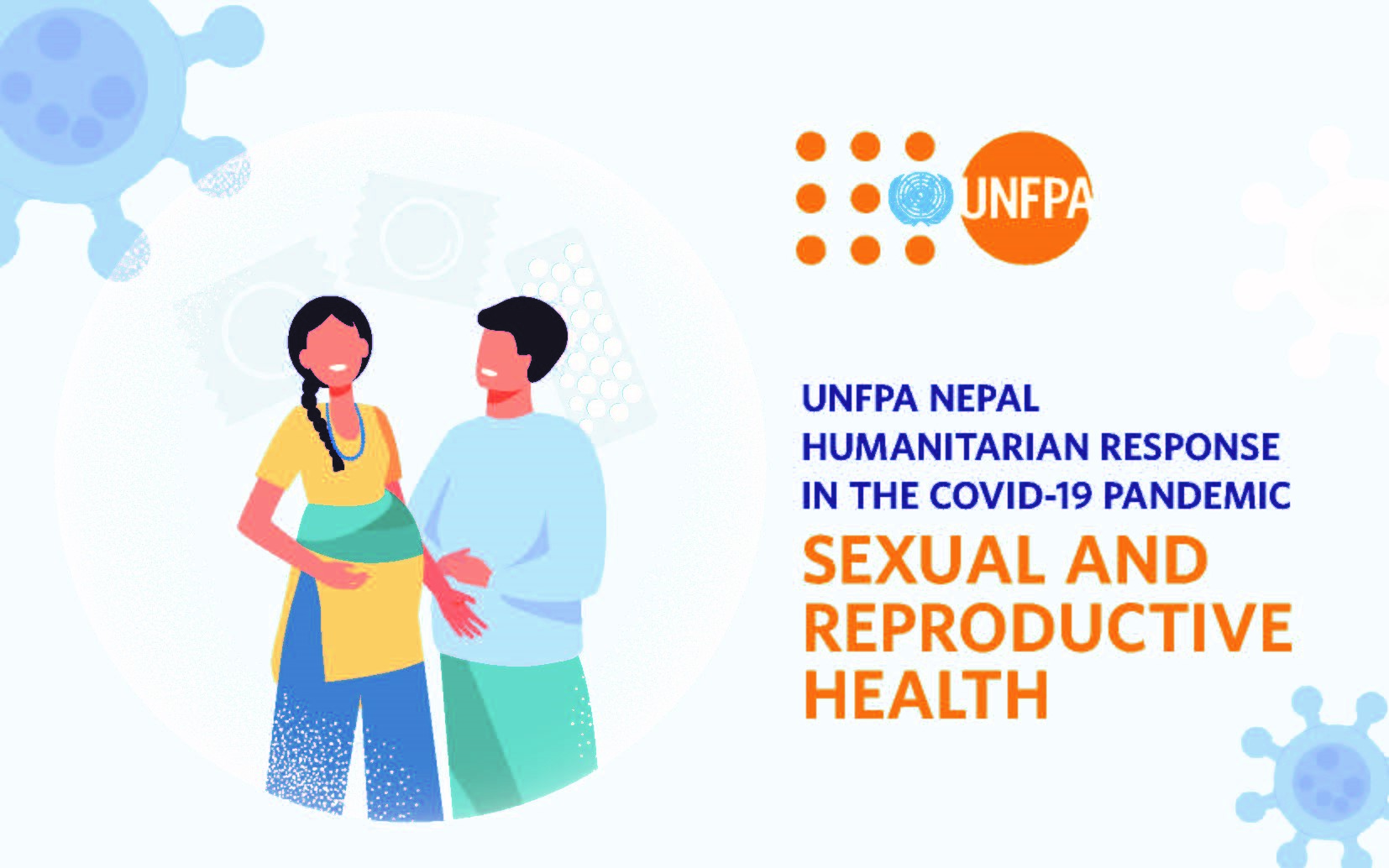
UNFPA Nepal COVID-19 response: Sexual and reproductive health
The COVID-19 pandemic has strained Nepal's public health system, triggering unprecedented measures by the Government of Nepal, including movement restrictions. Evidence from prior outbreaks shows that this crisis could exact a massive toll on women and girls. Women are disproportionally represented in the health and social services sectors, increasing their risk of exposure to the disease. Stress, limited mobility and livelihood disruptions also increase women’s and girls’ vulnerability to gender-based violence and exploitation. And if resources are redirected away from sexual and reproductive health services, women’s access to family planning, antenatal care and other critical services could suffer.
Since the COVID-19 outbreak in the country, in coordination and collaboration with government agencies and development partners UNFPA Nepal is on the ground to respond to the crisis. This infographic captures UNFPA's key interventions in addressing sexual and reproductive health across the country and the results achieved by the agency.
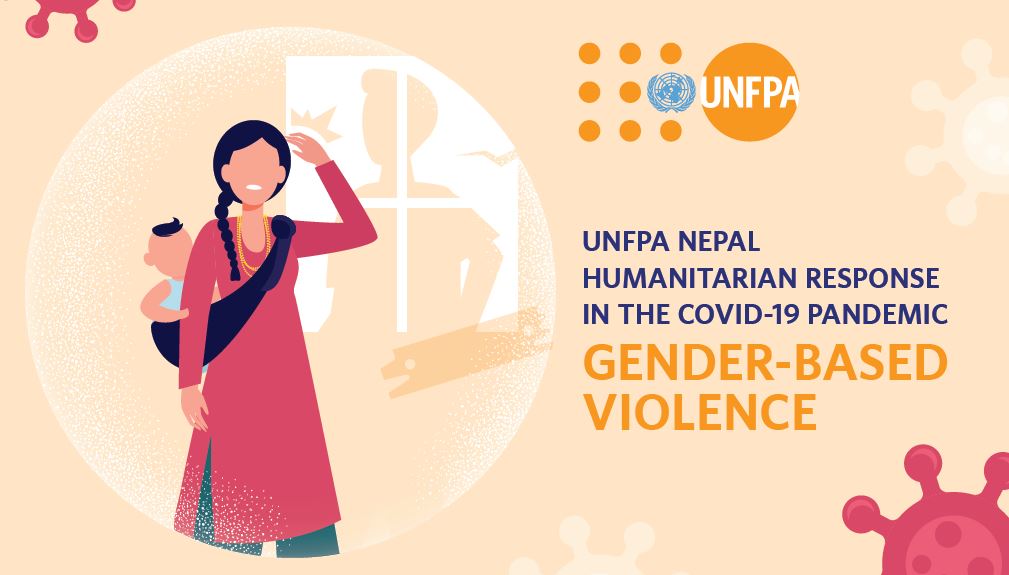
UNFPA Nepal COVID-19 response: Addressing gender-based violence
The COVID-19 pandemic has strained Nepal's public health system, triggering unprecedented measures by the Government of Nepal, including movement restrictions. Evidence from prior outbreaks shows that this crisis could exact a massive toll on women and girls. Women are disproportionally represented in the health and social services sectors, increasing their risk of exposure to the disease. Stress, limited mobility and livelihood disruptions also increase women’s and girls’ vulnerability to gender-based violence and exploitation. And if resources are redirected away from sexual and reproductive health services, women’s access to family planning, antenatal care and other critical services could suffer.
Since the COVID-19 outbreak in the country, in coordination and collaboration with government agencies and development partners UNFPA Nepal is on the ground to respond to the crisis.
This infographic captures UNFPA's key interventions in addressing gender-based violence across the country and the results achieved by the agency.
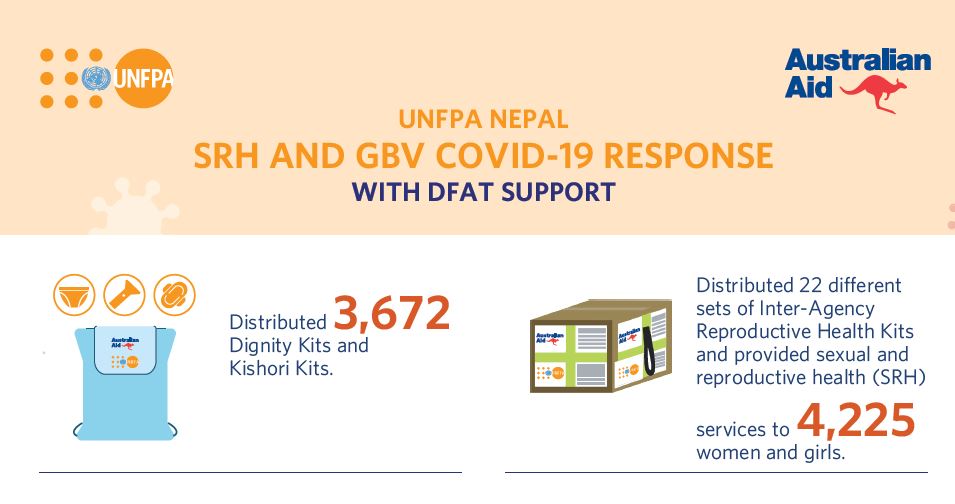
UNFPA Nepal SRH and GBV COVID-19 response with DFAT support
With DFAT support, UNFPA Nepal prepositiones supplies to meet the urgent needs of women and girls following a disaster. Lifesaving items include clean delivery kits and equipment necessary for maternity and delivery facilities. Supplies also include basic hygiene items, such as soap and resuable sanitary napkins, and items for protection including torches and whistles. These items help people to maintain a safe and dignified life during a crisis. Prepositioning as part of preparedness measures, can help improve the quality of a response.
This infographic covers key interventions and the results achieved by UNFPA Nepal during the COVID-19 pandemic with DFAT support.
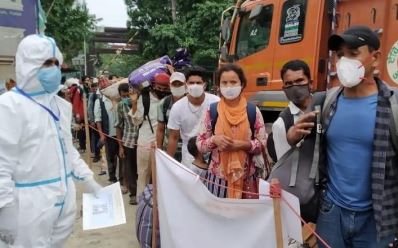
Nepal COVID-19 SitRep 39
This report is produced by Office of the Resident Coordinator in collaboration with partners. It covers the period from 29 May to 4 June 2021.
HIGHLIGHTS
- Meeting with provincial Chief Ministers highlighted significant gaps in essential human resources for medical response and huge challenges related to unemployment.
- Procurement of vaccines remains a critical gap and top priority.
- Service delivery is constrained by infection or fear of infection among essential staff who remain unvaccinated.
- Closure of schools with no or limited access to distance learning is reported to be contributing to child labor, child marriage and risky behavior among children.
- Isolation centres are regularly established without consideration of WASH requirements, thereby increasing infection risks.
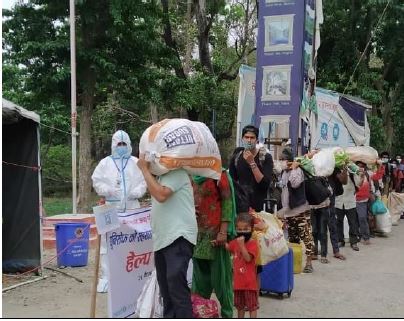
Nepal COVID-19 SitRep 38
This report is produced by Office of the Resident Coordinator in collaboration with partners and covers the period as of 28 May 2021.
HIGHLIGHTS
- Acute need for oxygen refill and supply systems.
- Antigen testing supplies have arrived in the country and will support testing capacity, but continued supply of testing kits remains a top need.
- Unconditional cash transfers as temporary income needed to enable vulnerable families to meet basic needs.
- Lack of strict regulation or enforcement around medical waste management may heighten infection risks.
- People displaced by natural hazards are at heightened risk of transmission. These types of risks are expected to increase over the coming months of the monsoon season.
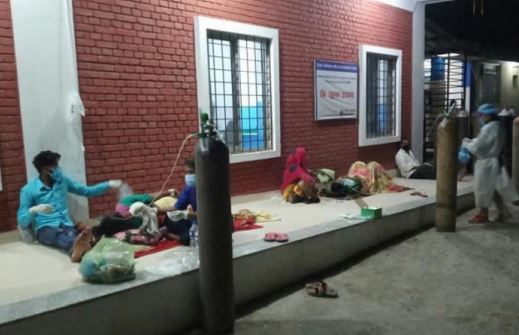
Nepal COVID-19 SitRep 37
This report is produced by Office of the Resident Coordinator in collaboration with partners. It covers the period from 15-21 May 2021.
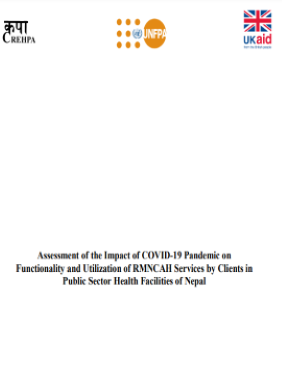
Assessment of the Impact of COVID-19 on Functionality and Utilization of RMNCAH Services by Clients in Public Sector Health Facilities of Nepal
This study assessed the functionality and utilization of essential reproductive, maternal, neonatal, child and adolescent health (RMNCAH) services during the COVID-19 pandemic and restrictive measures being implemented at the federal, provincial and local levels in Nepal.
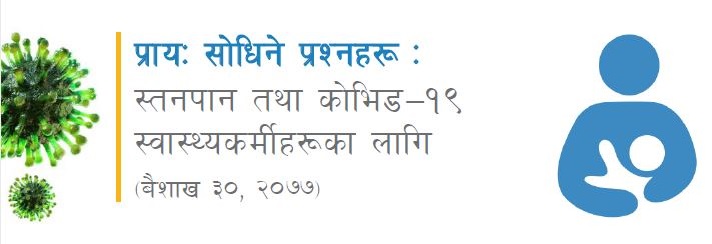
स्तनपान तथा कोभिड-१९ सम्बन्धी प्रायः सोधिने प्रश्नहरू
यस प्रायः सोधिने प्रश्न सम्बन्धी प्रकाशनले निम्न पक्षहरूलाई समेट्छ :
अ) आमाको दूधबाट शिशुमा कोभिड—१९ सर्न सक्ने जोखिमका विषयमा उपलब्ध प्रमाण
आ) स्तनपान र आमाको छालाको स्पर्श पार्ने सुरक्षात्मक प्रभाव, र
इ) नवजात शिशुहरूका लागि बनाइएको फर्मूला दूधको अनुपयुक्त प्रयोगका हानिकारक असरहरू
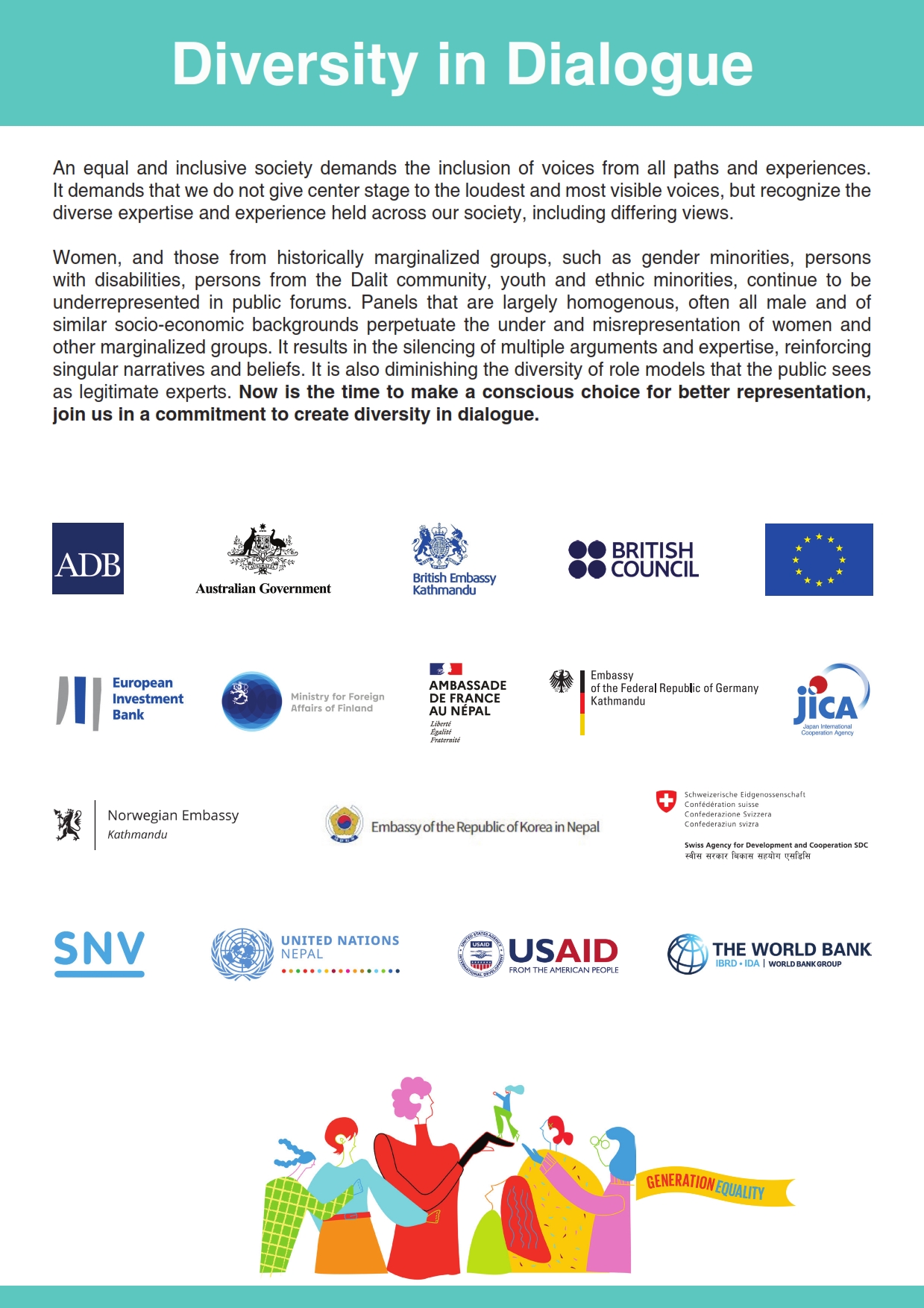
Diversity in Dialogue: Pledge and Checklist
An equal and inclusive society demands inclusion of voices from all paths. The United Nations in Nepal and development partners have pledged to Promote Diversity in Dialogue. Check out this pledge and checklist.
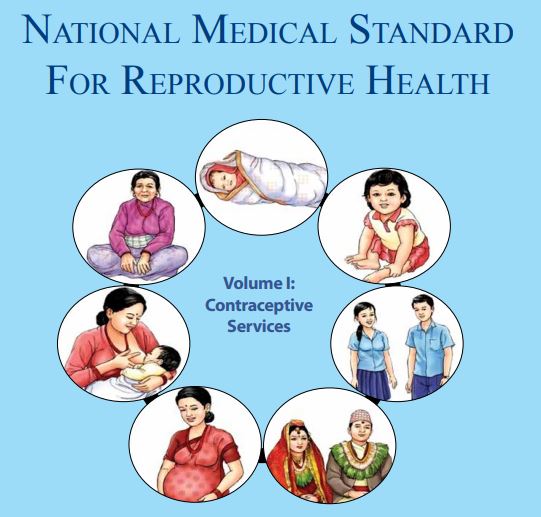
National Medical Standard for Reproductive Health
The manual is designed to provide policy-makers, provincial and municipal health officers, hospital directors, clinical supervisors, and health service providers with accessible, clinically-oriented information to strengthen the provision of reproductive health services in Nepal. The first section contains the standards for counseling, client assessment, infection prevention, quality improvement in family planning and complication management systems for providing family planning services.
Similarly, the second part contains the national standards for specific contraceptive methods available in the country.
The last section focuses on situation-specific contraception such as postpartum/post-abortion family planning, adolescent contraception, satellite clinic, emergency contraception, etc.
This publication is developed by the Family Welfare Division under the Ministry with support from UKaid, UNFPA and Jhpiego.